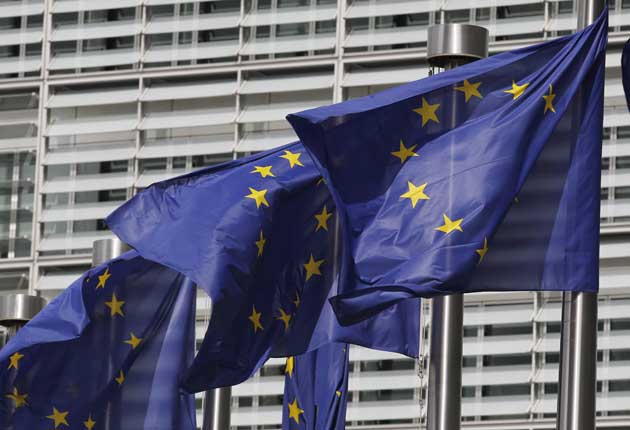Reports of euro's death are greatly exaggerated

Your support helps us to tell the story
From reproductive rights to climate change to Big Tech, The Independent is on the ground when the story is developing. Whether it's investigating the financials of Elon Musk's pro-Trump PAC or producing our latest documentary, 'The A Word', which shines a light on the American women fighting for reproductive rights, we know how important it is to parse out the facts from the messaging.
At such a critical moment in US history, we need reporters on the ground. Your donation allows us to keep sending journalists to speak to both sides of the story.
The Independent is trusted by Americans across the entire political spectrum. And unlike many other quality news outlets, we choose not to lock Americans out of our reporting and analysis with paywalls. We believe quality journalism should be available to everyone, paid for by those who can afford it.
Your support makes all the difference.Towards a stronger European economic governance, says the giant poster on the side of the European Commission's Berlaymont headquarters in Brussels. Incredibly, it has a picture of a euro coin on it.
I can't help wondering how quickly such a poster would be ripped down or defaced if it were put up in Athens.
The romantics who dream of ever-closer European integration never give up, but seem dangerously out of touch with the ordinary people they seek to represent. The simmering tensions always inherent in the one-size-fits-all single currency have finally boiled over into the Greek crisis.
That doesn't mean, as some suggest, that the euro will implode if – or more likely, when – Greece leaves it.
Germany and France have invested too much in such an integral part of the EU project. In my experience, politics often trumps economics, and so reports of the euro's imminent death are exaggerated.
In Britain, Conservative and Labour Eurosceptics dance prematurely on its grave. They wish for something that could create turmoil across Europe and stall the already fragile growth in their own country.
David Cameron recognises this and argues that a strong euro is good for Britain. When he became Prime Minister, Brussels feared the arrival of a Thatcher Mark II. They were pleasantly surprised to find a supreme pragmatist.
Mr Cameron doesn't think the ever-increasing number of leaders' summits are the most productive use of his time; hearing 26 other leaders make predictable speeches can be wearing. But he uses the time to network and build alliances for future battles. A big one looms over the EU's budget for 2014-20, where he will lead demands for a freeze.
Yet again, Mr Cameron is using the Tony Blair Playbook. Mr Blair vowed to end the UK's half-in, half-out approach to Europe by taking it into the single currency. Gordon Brown stopped him. Although it is unfashionable to praise Mr Brown, current events show how right he was.
"We wouldn't have been Greece but we could have been Ireland," said one pro-EU Cabinet minister. Bad enough.
A thwarted Mr Blair proved himself wrong. His networking ensured Britain won a seat at the EU's top table without being a full member of the club inside the euro.
Mr Cameron's inheritance from Mr Blair means the British people can enjoy the best of both worlds – the benefits of the single market without the instability of the single currency. Probably the kind of Europe a majority of them would want.
Arch-federalists have always hated the idea of a two-speed Europe, but it is unfolding before our eyes.
The EU train's direction of travel is now unmistakable and Greece won't be the last stop.
Join our commenting forum
Join thought-provoking conversations, follow other Independent readers and see their replies
Comments